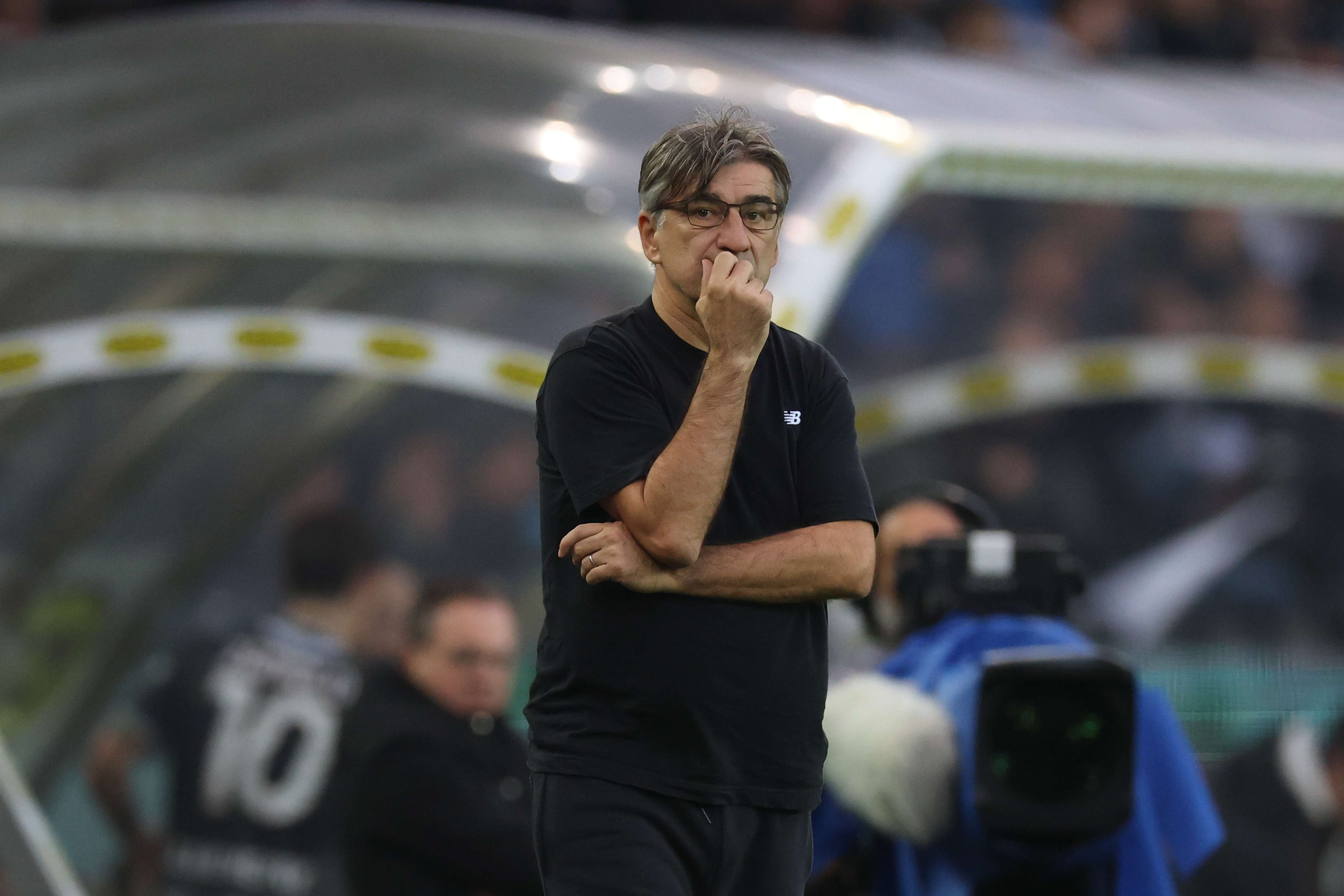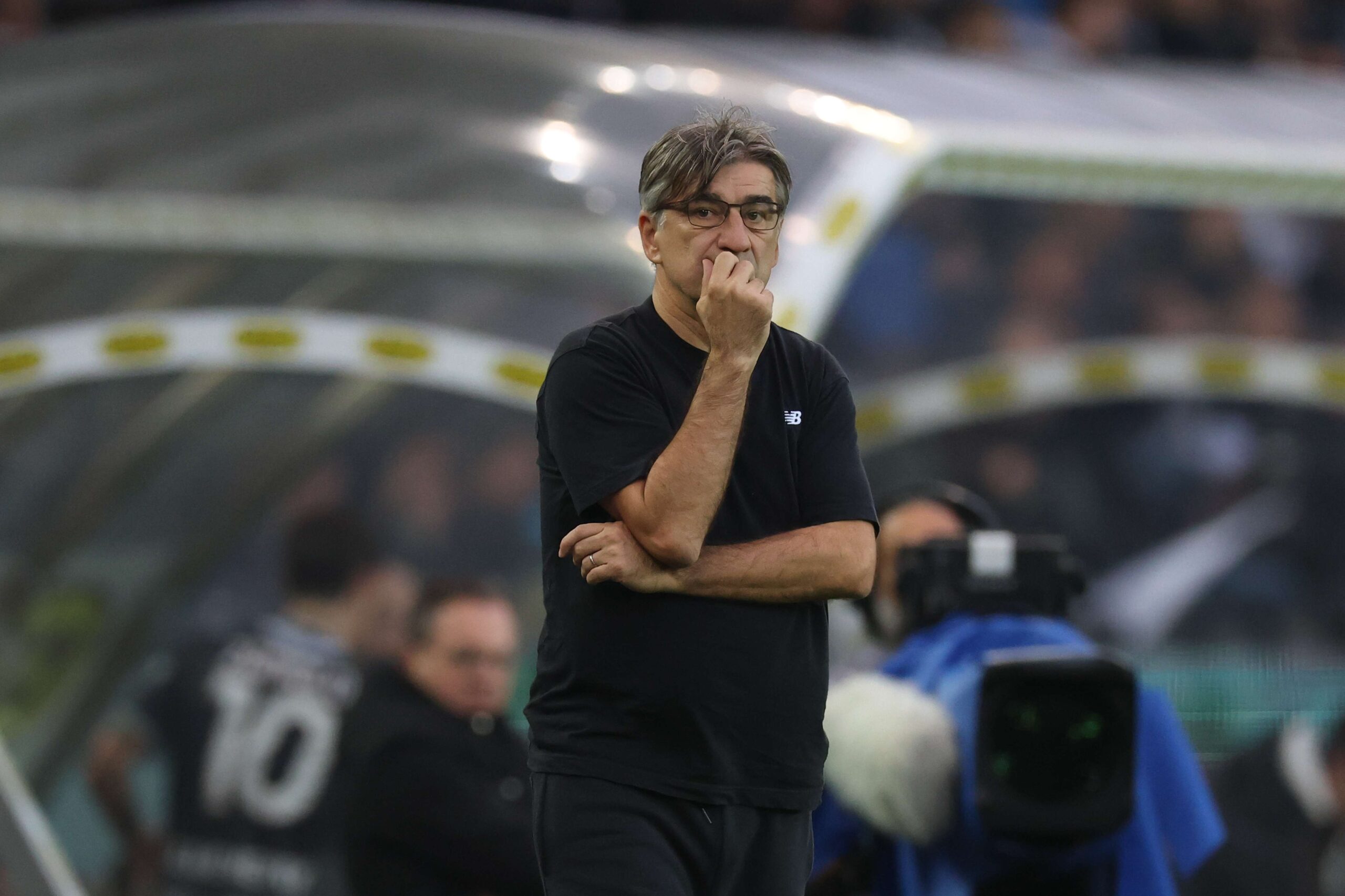Atalanta’s Touchline Drama: A Reflection of Modern Football’s Divisive Culture and the Battle for Authority in the Game’s Arena
In the world of professional football, the touchline is often a theater of heightened emotions, where the stakes are as high as the passions involved. The recent incident involving Atalanta manager Ivan Juric and forward Ademola Lookman during their Champions League match against Olympique Marseille serves as a microcosm of the broader tensions that exist within the sport today. Juric’s comments following the match, where he downplayed the confrontation with Lookman as a “normal episode,” reflect a culture that is increasingly polarized between the authority of the coach and the autonomy of the player.
The backdrop of this incident is significant. Atalanta’s 1-0 victory, secured by a last-minute goal from Lazar Samardzic, was crucial for a team that had been under intense scrutiny after a series of disappointing performances. Juric’s assertion that the team played at a “very high level” despite earlier setbacks underscores the pressure that managers face in high-stakes environments. The victory not only provided relief but also a chance to regain confidence, a commodity that can be as fragile as the players’ morale.
However, the focus quickly shifted from the tactical success on the pitch to the interpersonal dynamics between Juric and Lookman. The Nigerian forward’s visible reluctance to be substituted sparked a heated exchange, drawing attention away from the match’s outcome. Juric’s dismissal of the incident as commonplace in modern football raises questions about the evolving relationship between players and coaches. In an era where player power is on the rise, such confrontations can be seen as emblematic of a larger struggle for control within clubs.
Juric’s comments about adrenaline and nervousness highlight a critical aspect of competitive sports: the emotional investment players have in their performance. This investment often translates into a refusal to accept substitution, a phenomenon that is not exclusive to Lookman but rather a common occurrence across various leagues and teams. The manager’s reference to similar situations involving high-profile players like Kevin De Bruyne illustrates that this is not merely an isolated incident but a recurrent theme in football.
The tension between a coach’s tactical decisions and a player’s desire to remain on the pitch reflects the broader societal themes of authority and individual agency. In many ways, Juric’s insistence on unity and respect for the club’s jersey echoes the age-old battle between collective responsibility and personal ambition. The challenge for modern managers lies in navigating these complex dynamics while maintaining team cohesion and morale.
Moreover, the incident raises questions about the mental health and emotional well-being of players in high-pressure environments. The adrenaline that Juric mentions can lead to heightened emotions, which, if not managed properly, can result in conflicts that distract from the team’s objectives. The increasing awareness of mental health in sports necessitates a more nuanced understanding of these interactions. Coaches must not only be tacticians but also emotional leaders who can guide players through the psychological challenges of competition.
Atalanta’s recent struggles and the subsequent victory against Marseille can also be viewed through the lens of resilience. The club has built a reputation for its ability to overcome adversity, often emerging stronger from challenging situations. This resilience is not just a testament to the team’s physical capabilities but also to the mental fortitude of its players and coaching staff. Juric’s focus on moving forward and clarifying the situation with Lookman emphasizes the importance of internal resolution and collective progress.
As football continues to evolve, the dynamics between players and coaches will likely remain a point of contention. The increasing visibility of such incidents, amplified by social media and 24-hour news cycles, means that every confrontation is scrutinized and analyzed. This scrutiny can add pressure to both players and managers, making it essential for clubs to foster environments where open communication and mutual respect are prioritized.
The implications of the Juric-Lookman incident extend beyond Atalanta. They serve as a reminder of the delicate balance that must be maintained in professional sports, where the passion for the game can lead to both conflict and camaraderie. As clubs navigate the complexities of modern football, the ability to manage these interpersonal relationships will be crucial for success on and off the pitch. The road ahead for Atalanta, and indeed for many clubs, will depend on their capacity to harness the emotional intensity of the game while fostering a culture of unity and respect.

Atalanta manager Ivan Juric was forced to address a highly visible touchline row with forward Ademola Lookman following the club’s vital 1-0 Champions League victory over Olympique Marseille at the Stade Vélodrome on Wednesday night.
Crucial Win Settled by Samardzic
The win, sealed by a brilliant 90th-minute strike from substitute Lazar Samardzic, saw Atalanta return to winning ways in Europe after a month-long drought, securing a result Juric insisted was fully deserved. The victory provided both significant relief and renewed confidence for a side that had recently faced a torrent of criticism.
In his post-match press conference, Juric first defended his team’s recent form, via TuttoAtalanta: “I think we played a very high-level game, from start to finish. We were unlucky with some episodes—I think of the missed penalty or the disallowed goal—but the performance was always solid, intense, and consistent. The victory is fully deserved.”
The Lookman Incident
Despite the late-game drama and the tactical triumph, attention quickly shifted to the tense interaction Juric had with Lookman when attempting to remove him from the game. The Nigerian international was clearly seen rejecting the substitution, sparking on-field friction.
Juric was quick to dismiss the severity of the bust-up, classifying the player’s frustration as a common aspect of high-stakes football, indicating that the player’s refusal to exit the field immediately was born out of adrenaline:
“These are normal episodes in modern football, they happen every week everywhere. Players never willingly accept being taken off—it happens to [Kevin] De Bruyne in Naples, it happens everywhere.”
“On the pitch, there is adrenaline, there is nervousness, but then everything ends in the locker room. The fundamental thing is to remember that the only thing that counts is Atalanta, the group, the team, and the fans. We all must row in the same direction and respect this jersey. Everything is clarified, and we go forward.”
The manager’s insistence that the matter was resolved internally aims to close the discussion and keep the focus on the three crucial points earned in France, which bolsters Atalanta’s position in the competition. The win is seen as a reward for the team’s consistent hard work and refusal to let “senseless criticism” derail their efforts.
Kaustubh Pandey I GIFN

